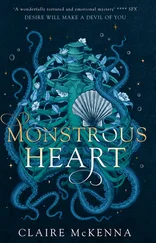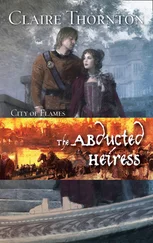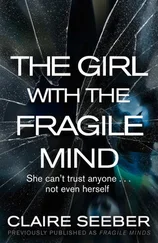Together, they went online and researched the growing momentum for an international defense effort. The world’s best engineers were sent to South America to design and build an intercept vehicle that could knock UD3 from its trajectory. Military aircraft passed overhead on their way south, like a long migration of metal birds.
“What if the Effort’s a lie?” Enrico’s mother asked, as they watched from their balcony.
She didn’t bother to whisper. His parents no longer tried to hide the truth that everyone could already see.
“Just for show,” she added, “to keep us from killing one another?”
Enrico’s father shrugged. He found the Effort comforting, even if a deflection proved impossible.
“Then it’s a nice lie.”
“Lies are lies,” Enrico piped up.
But he believed in the engineers on those planes and their mission. He believed in the power of science ever since he saw one of his own cells under a microscope, stained blue and giggling in saliva. Now that was a miracle that had nothing to do with the saints.
When the power went out, the family lost their air-conditioning, hot water, oven and microwave, internet access, phone chargers, and television. Enrico’s mother wept on the sofa, clutching her remote control. A few weeks before, celebrities from her favorite telenovelas had joined in a televised prayer vigil for the global crisis. Each of the celebrities read from prayer cards as favorite character clips spliced into the visuals. Enrico’s mother kept the channel on 24/7 until the screen went dark.
“They were like my friends,” she told Enrico. “Now I’m cut off and alone.”
“You still have us,” Enrico said. “And we’re real.”
She locked her arms around him and sighed into his hair. Enrico inherited her dimples, but not much else. She was a beauty queen with gold skin and hair. Marriage proposals came the day of her quinceañera , but she waited. Sure enough, Enrico’s father spotted her while traveling on business. He was the president of a national bank, slight in stature but immaculately dressed in a pressed linen suit and wire-rimmed glasses.
Marriage, Enrico’s mother proclaimed happily, was just like her quinceañera todos los días —but better. Who needed costume jewelry when you had a three-carat engagement ring and credit terms at designer shops? Who needed a tacky party at a hotel in the suburbs when you dined with the mayor and his wife in Polanco? Enrico’s mother maintained that it was all a fairy tale.
Except that life never is, Enrico’s father always replied. His job was very stressful and gave him insomnia. He encouraged Enrico’s love of science because he had imagined life as a field biologist until familial duty pulled him toward finance. Dream while you’re young , he whispered to his boy.
But it was difficult to dream as the comet grew closer. Its slow increase in size was both terrifying and too predictable for a ten-year-old. Enrico pulled his drone out of his bedroom closet and carried it to the balcony. When he strapped on the goggles, he saw his unrecognizable city through the darting and hovering eyes of a hummingbird. More and more pilgrims arrived at the basilica every day. Parked cars and RVs clogged streets and highways. Thieves crept along the line of vehicles at night, siphoning off any fuel they could find with hoses and canisters. Such stealth was unnecessary. All eyes, except Enrico’s, were trained ahead and looking for salvation.
When the drone’s batteries died, Enrico switched the lens on his telescope and trained it down instead of up.
“Looks like we’re back to spying the old-fashioned way,” his father called out.
He always hated the drone.
Enrico named the city Tent Town after pilgrims spread fat-caterpillar sleeping bags onto the ground and hung a colorful patchwork of bedsheets for curtains. They lit prayer candles after dusk. Looking down from his balcony, Enrico thought of the firefly sanctuary east of the city in Tlaxcala. Only the prayer lights didn’t blink in syncopated rhythm; they burned steady, illuminating the hands and faces of God’s faithful.
Enrico’s mother stood by him at night. She either waited for a turn at the telescope or leaned over the rail and into the updraft, shaking gold strands of hair out of her eyes and the crease of her full lips.
“So pretty,” she whispered.
It was such an awe-filled, confused statement that it almost sounded like a question. The lights were lovely, but there was a putrid smell on rising gusts. There was hysteria in the echoes of collective prayers from below.
The pilgrims’ candles burned out by the end of September, leaving only darkness. About that time the water and sewer systems both failed. New arrivals to the city increased, but not all were convinced that God was watching. Cartel gangs, always the scourge of Mexico, came armed with machine guns and machetes. They pillaged the last of the pilgrims’ food and water.
Enrico’s mother stopped joining him on the balcony. She retreated to the master bedroom and prayed with her grandmother’s rosary beads for her family first and the pilgrims second. Enrico’s father said nothing as he emptied the mixing bowl she used for a chamber pot out the window.
Residents in Enrico’s building were still better off than most. They were rich and connected and had longer access to scarce food and supplies. But being better off could be dangerous, which was nothing new. Enrico always had armed chaperones when he ventured beyond the building gates and small security details at each of his birthday parties. Being the only child of a wealthy power couple made him a bigger target.
Enrico helped his father pile all their furniture and belongings into the condo’s fire exit stairwell. Everything but their beds and mattresses was used to create an impassable obstacle. Anyone intrepid enough to scale the twelve-foot walls surrounding their building, break through steel doors to the lobby, and climb fifty-five flights of stairs would still have their work cut out for them.
“But what about the neighbors?” Enrico asked. “What if they need our help?”
He thought about the widow Padilla Hernandez and her Chihuahua, Sancho, who lived two flights down. The frail woman kept doggie treats in one pocket of her purse and Pica Fresa candies for Enrico in another.
“We don’t have neighbors anymore,” his father muttered.
“Then what about us?” Enrico asked.
He dragged a light aluminum-tube chair from the balcony to the interlocking mesh of objects.
“How will we get out?”
“We’ll take the elevator like we used to do,” his father replied.
“But what if we don’t get power back?”
Enrico’s father said nothing, just as he said nothing about his bedbound wife or the gunshots from the streets below. Instead, he went for his Bible. Enrico joined his father as he sat cross-legged like a child in their empty living room. His glasses had smudged lenses, but their metal frames still shone in the window light. As a bank executive, he had never looked so unkempt, with his growing beard, running shorts, and sweat-stained undershirt. Both parents, once larger than life, were now looking desperate and mortal.
It was all prophecy, he explained to Enrico: hunger, swords, blood, and death as the stars of heaven fell unto the earth, even as a fig tree casteth her untimely figs, when she is shaken of a mighty wind… Enrico fidgeted as his father read Revelation aloud. He fingered impressions in their wall-to-wall white carpet, where there used to be custom furniture.
“What happens when our food runs out?” Enrico interrupted.
“Then we pray,” his father snapped. “Can’t you see what I’m showing you? If you’re so smart, why do I have to spell it all out?”
Читать дальше












